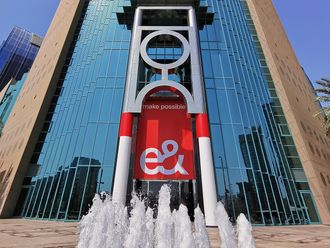Mumbai: Investors in Indian equities will have to brace for more pain as inflation is set to accelerate to double digits following an increase in state-controlled fuel prices and trigger another round of rate increases — probably as early as July.
After dilly-dallying for months, Prime Minister Manmohan Singh's ruling coalition raised diesel prices on Friday by around nine per cent, the first increase since last June, in a move that will set off a domino effect for prices of nearly everything from food to manufactured items and energy costs.
Headline inflation which stood at 9.06 per cent in May, more than twice as that in the US, four times than in Germany and compared with 5.5 per cent in China, would jump past 10 per cent and put pressure on the Reserve Bank of India (RBI) to tighten policy even more, analysts said.
Price pressures
"The message is loud and ominous: Price pressures are going to mount, the RBI will come down harder and growth will take a back seat," said equity trader Ramesh Patel.
The RBI has hiked rates 10 times starting from mid-March last year, taking its benchmark lending and borrowing rates up by 275 basis points, the most by any central bank across the world, to batten down inflation.
The increases have already dented the pace of growth of India's $1.4 trillion (Dh5 trillion) economy, hit corporate earnings and driven investors away from the stock market, which had attracted a record $29.3 billion in foreign portfolio investment in 2010. In comparison, latest data from the Securities and Exchange Board of India shows there has been a net outflow of $390 million from stocks since the start of January. Foreign funds moved $3.2 billion into debt securities during the same period, indicating a flight to safety during uncertain times.
Diesel prices in Mumbai now cost almost Rs4 (Dh0.32) more at nearly Rs46 a litre, including local taxes. The government also raised prices of cooking gas by Rs50 a cylinder and kerosene by Rs2 per litre, both before taxes. Oil Secretary G.C. Chaturvedi said the fuel price increase was expected to add 30 basis points to headline inflation
D.K. Joshi, chief economist at ratings agency Crisil, in which Standard & Poor's has a large stake, believes the direct and indirect impact of the diesel price rise would be 100 basis points on the wholesale price index, the mostly widely tracked indicator in India. As diesel is the main fuel for transportation of goods across this vast country on road, rail and waterways, the increase in prices will have a cascading effect on almost all items, including cement and steel where the costs are usually significant.
Many farmers and households in energy-deficient India also depend on diesel generating sets to drive their water-pumps or homes and shops. Higher fuel prices will add to the costs of food that is already running high and could cause social unrest among a large swathe of people on shoe-string budgets. "I am sandwiched between economists on the one hand and populists on the other hand," said Oil Minister Jaipal Reddy, putting on a brave face after the ministerial meeting to raise prices. "Political problems will always be there and economic problems do not wait for solution of so-called political crises."
Deficient rains
The food price index had risen 9.13 per cent in the week ended June 11, and this could escalate sharply in the coming weeks if the monsoon rains which have been deficient in many parts of the country continue to play truant. "Although the drivers of inflation in recent months have been energy prices and demand pressures as reflected in the non-food manufactured product index, food prices contributed significantly in the first half of 2010 and remains uncomfortably high," Subir Gokarn, a deputy governor of the RBI said last week.
The top-30 Sensex, which has been the world's worst performing major index among major emerging markets, had a rollercoaster ride last week. It initially slumped more than three per cent at one stage on jitters the government was negotiating to repeal a treaty with Mauritius, a tax-haven from where most foreign funds route investments into India.
The writer is a journalist based in India.












